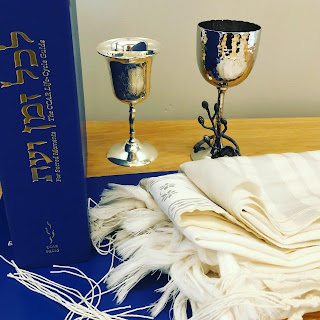All is One: the Jewish Path to Embodied Sanctity

Sermon Shabbat Chol haMoed Sukkot 2018 Rabbi Esther Hugenholtz There are many legends and responses to the phenomenon of the lulav. Karaites (Jews who only follow Mikra , Scripture, and not the Oral Law, or Talmud) will dwell in booths during Sukkot but not bless the lulav, which they see as a rabbinic innovation. Likewise, Samaritans who were separated from the ancient Israelites after exile and war and only have the Torah, do not use a lulav either and dwell under canopies of fruit suspended in their homes. There are even some Reform and Reconstructionist Jews who have reinvented the lulav. Critiquing the economic and environmental costs of lulavim and etrogim, they have chosen to source local plants and fruits in a direct fulfillment of the Biblical commandment, yet in contravention of the classical Halakhah . All these are creative responses to an inherent tension: what are we to make of this rather strange and arcane r...





